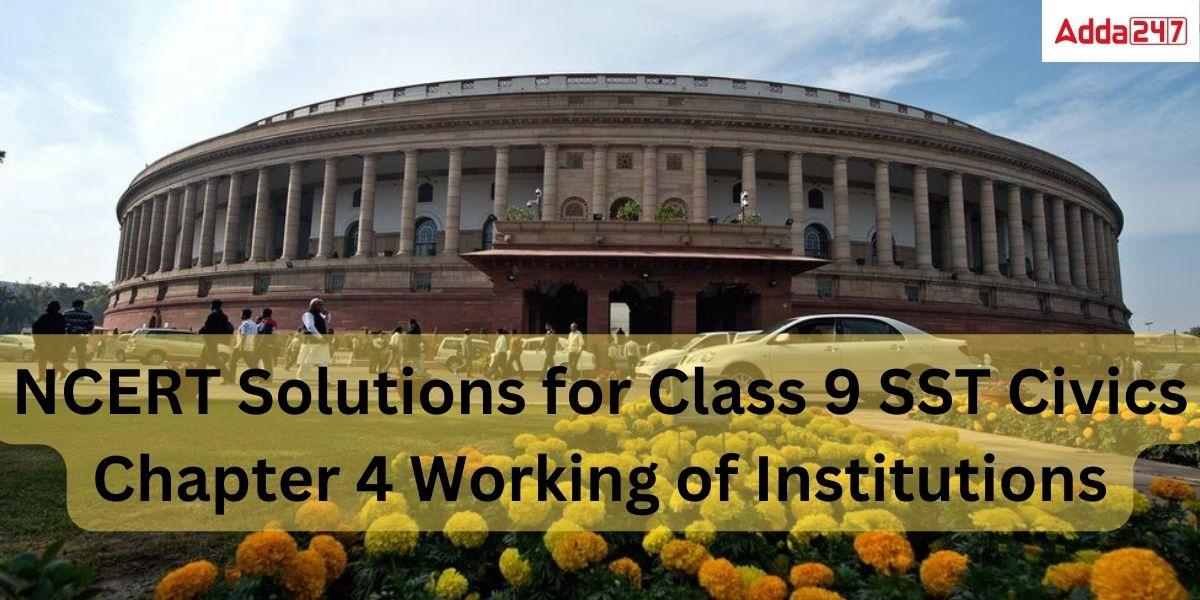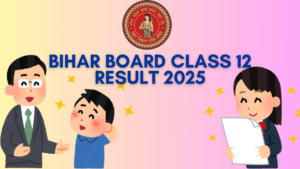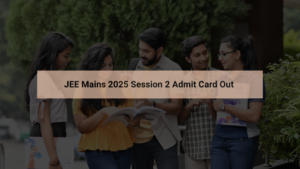Table of Contents
NCERT Solutions for Class 9 SST Civics Chapter 4 Working of Institutions
NCERT Solutions for Class 9 SST Civics Chapter 4 Working of Institutions. notes are provided in this article. NCERT Solutions for class 9 is the finest resource for getting a high score on the class 9 Examination. Adda247 Expert faculty team prepared NCERT Solutions for Class 9 SST Civics Chapter 4 Working of Institutions exercises of that chapter for a better grasp of the topics. These NCERT Solutions answer all questions in an easy and simple manner. These solutions will help you understand the concepts covered in the chapter completely. By writing these answers in the exam students will undoubtedly be able to achieve high scores. Keep learning with Adda247.
NCERT Solutions for Class 9 SST Civics Chapter 4 Working of Institutions Pdf
NCERT Solutions for Class 9 SST Civics Chapter 4 Working of Institutions Pdf is given in pdf format so students can easily download it for future use. Click here to download NCERT Solutions for Class 9 SST Civics Chapter 4 Working of Institutions
Class 9 SST Civics Chapter 4 Working of Institutions Video Explanation
Class 9 SST Civics Chapter 4 Working of Institutions: Summary
Class 9 SST Civics Chapter 4 Working of Institutions introduces how the government functions, how laws are drafted, and who is responsible for doing so. The organization in charge of enacting laws is the Indian Parliament. Let’s take a tour of the topics and subtopics which are included in the Class 9 SST Civics Chapter 4 Working of Institutions
1. How Is A Major Policy Decision Taken?
- A Government Order
- The Decision-Makers
- Need for Political Institutions
2. Parliament
- Why do We Need a Parliament?
- Two Houses of Parliament
3. Political Executive
- Political and Permanent Executive
- Prime Minister and Council of Ministers
- Power of the Prime Minister
- President
4. The Judiciary
NCERT Solutions for Class 9 SST Civics Chapter 4 Working of Institutions Questions with Answer
1. If you are elected as the President of India which of the following decision can you take on your own?
- Select the person you like as Prime Minister.
- Dismiss a Prime Minister who has a majority in Lok Sabha.
- Ask for reconsideration of a bill passed by both the Houses.
- Nominate the leaders of your choice to the Council of Ministers.
Answer. 3. Ask for reconsideration of a bill passed by both the Houses.
2. Who among the following is a part of the political executive?
- District Collector
- Secretary of the Ministry of Home Affairs
- Home Minister
- Director-General of Police
Answer. 3. Home Minister
3. Which of the following statements about the judiciary is false?
- Every law passed by the Parliament needs approval of the Supreme Court
- Judiciary can strike down a law if it goes against the spirit of the Constitution
- Judiciary is independent of the Executive
- Any citizen can approach the courts if her rights are violated
Answer. 1. Every law passed by the Parliament needs approval of the Supreme Court
4. Which of the following institutions can make changes to an existing law of the country?
- The Supreme Court
- The President
- The Prime Minister
- The Parliament
Answer.4. Parliament
5. Match the ministry with the news that the ministry may have released:
| A new policy is being made to increase the jute exports from the country | Ministry of Defence |
| Telephone services will be made more accessible to rural areas | Ministry of Agriculture, Food and Public Distribution |
| The price of rice and wheat sold under the Public Distribution System will go down | Ministry of Health |
| A pulse polio campaign will be launched | Ministry of Commerce and Industry |
| The allowances of the soldiers posted on high altitudes will be increased | Ministry of Communications and Information Technology |
Answer.
| A new policy is being made to increase the jute exports from the country | Ministry of Commerce and Industry |
| Telephone services will be made more accessible to rural areas | Ministry of Communications and Information Technology |
| The price of rice and wheat sold under the Public Distribution System will go down | Ministry of Agriculture, Food and Public Distribution |
| A pulse polio campaign will be launched | Ministry of Health |
| The allowances of the soldiers posted on high altitudes will be increased | Ministry of Defence |
6. Of all the institutions that we have studied in this chapter, name the one that exercises the powers on each of the following matters.
- Decision on allocation of money for developing infrastructure like roads, irrigation etc. and different welfare activities for the citizens
- Considers the recommendation of the Committee on a law to regulate the stock exchange
- Decides on a legal dispute between two state governments
- Implements the decision to provide relief for the victims of an earthquake
Answer.
- Lok Sabha (Ministry of Finance)
- Parliament
- Supreme Court
- Executive
7. Why is the Prime Minister in India not directly elected by the people? Choose the most appropriate answer and give reasons for your choice.
- In a Parliamentary democracy only the leader of the majority party in the Lok Sabha can become the Prime Minister.
- Lok Sabha can remove the Prime Minister and the Council of Ministers even before the expiry of their term.
- Since the Prime Minister is appointed by the President, there is no need for it.
- Direct election of the Prime Minister will involve a lot of expenditure on election.
Answer.
- In a Parliamentary democracy, only the leader of the majority party in the Lok Sabha can become the Prime Minister.
This is so that the Prime Minister of India can only be the leader of the majority party or parties in the Lok Sabha to ensure that the Prime Minister receives backing from the majority. The fact that he or she must collaborate with a council of ministers, will serve to prevent him or her from acting as either a dictator.
8. Three friends went to watch a film that showed the hero becoming Chief Minister for a day and making big changes in the state. Imran said this is what the country needs. Rizwan said this kind of personal rule without institutions is dangerous. Shankar said all this is a fantasy. No minister can do anything in one day. What would be your reaction to such a film?
Answer. No such provision exists where a guy might take over the role of CM for the day. A single individual cannot accomplish anything on his own. It is risky to have personal rules without organisations. Any state cannot function without a proper institution. The CM in our nation is chosen through a voting method. Important choices are made after deliberation and consultation as well. A law cannot be passed in a single day.
9. A teacher was making preparations for a mock parliament. She called two students to act as leaders of two political parties. She gave them an option: Each one could choose to have a majority either in the mock Lok Sabha or in the mock Rajya Sabha. If this choice was given to you, which one would you choose and why?
Answer. Since the Lok Sabha has more power than the Rajya Sabha, I would prefer to choose a majority there.
- Members of the Lok Sabha are chosen directly by Indian citizens.
- The prime minister is chosen from among the political party leaders with the majority in the Lok Sabha.
- The Rajya Sabha cannot reject a government budget or any other law relating to money passed by the Lok Sabha.
- The Council of Ministers is under the Lok Sabha’s jurisdiction. The Council of Ministers must resign if a majority of the Lok Sabha members express their lack of confidence in it, although the Rajya Sabha has this authority.
10. After reading the example of the reservation order, three students had different reactions about the role of the judiciary. Which view, according to you, is a correct reading of the role of judiciary?
- Srinivas argues that since the Supreme Court agreed with the government, it is not independent.
- Anjaiah says that judiciary is independent because it could have given a verdict against the government order. The Supreme Court did direct the government to modify it.
- Vijaya thinks that the judiciary is neither independent nor conformist, but acts as a mediator between opposing parties. The court struck a good balance between those who supported and those who opposed the order.
Answer. 2. Anjaiah says that the judiciary is independent is because it could have given a verdict against the government order. The Supreme Court did direct the government to modify it.
NCERT Solutions for Class 9 SST Civics Chapter 4 Working of Institutions -FAQs
Q. What is Parliament Class 9 civics?
The Parliament is a national body made up of chosen citizens’ representatives. The legislature, often known as the legislative assembly, is the body of state-level elected officials. The power to enact legislation rests with the Parliament.
Q. How can I access the online PDF version of the NCERT Solutions for Class 9 SST Civics Chapter 4 Working of Institutions?
Ans. The NCERT Solutions for Class 9 SST Civics Chapter 4 Working of Institutions PDF may be downloaded using the link in the article.
Q. What are the advantages of using Adda247’s NCERT Solutions for Class 9 SST Civics Chapter 4 Working of Institutions?
Ans. The advantages of using NCERT Solutions for Class 9 SST Civics Chapter 4 Working of Institutions from Adda247 include the following:
-
- The NCERT solution as well as a video explanation
- Additionally, a PDF is included, which can be downloaded and saved for future use



 Bihar Board 12th Result 2025 Out @ inter...
Bihar Board 12th Result 2025 Out @ inter...
 JEE Mains 2025 Session 2 Admit Card Out,...
JEE Mains 2025 Session 2 Admit Card Out,...
 Join ONE-Pro-Max - MAHAPACK for NEET-UG ...
Join ONE-Pro-Max - MAHAPACK for NEET-UG ...









